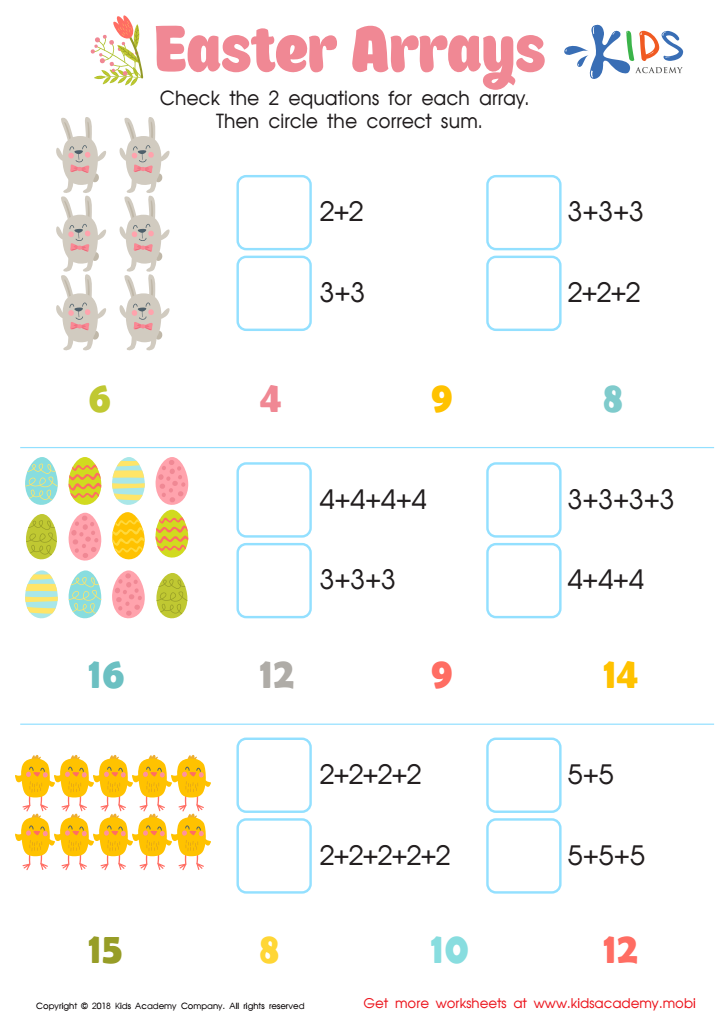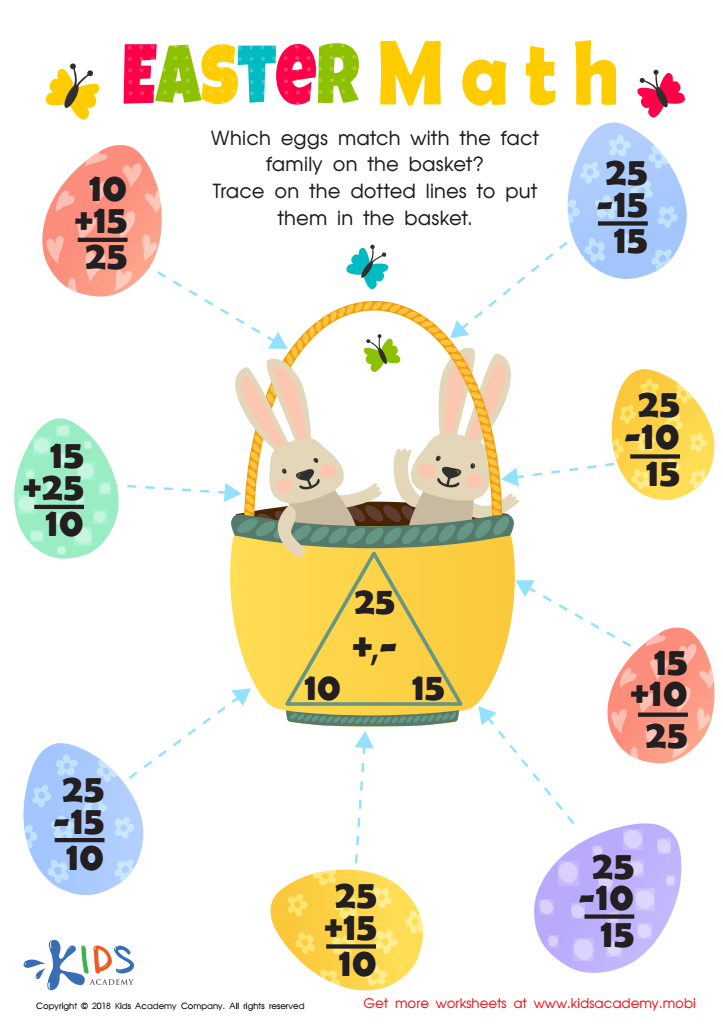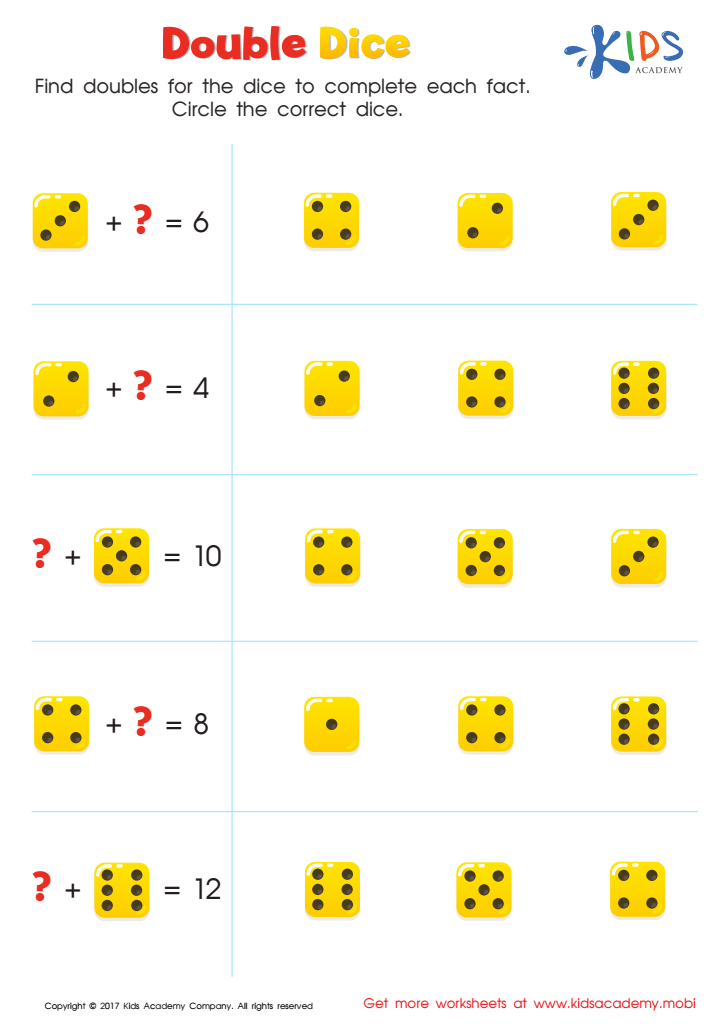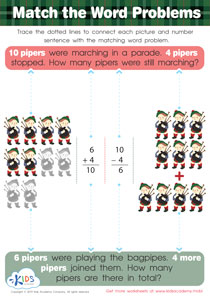Counting skills Normal Addition Worksheets for 7-Year-Olds
4 filtered results
-
From - To
Enhance your 7-year-old's counting skills with our engaging Normal Addition Worksheets! Designed to make learning enjoyable, these worksheets help young learners practice fundamental addition concepts while developing their number sense. The colorful and interactive format captures children's attention, encouraging them to solve problems and reinforce their counting abilities. Each worksheet presents a variety of challenges, allowing for progressive skill development from basic addition to more complex scenarios. Ideal for classroom use or at-home practice, our worksheets ensure that learning math is a fun and rewarding experience. Download our Counting Skills Addition Worksheets today and watch your child's confidence soar in math!


Easter Arrays Worksheet


Adding Flower Petals Worksheet


Fact Families: Easter Math Worksheet


Addition Facts: Double Dice Worksheet
Counting skills and normal addition are foundational math concepts that significantly impact the cognitive and academic development of 7-year-olds. At this age, children transition from rudimentary counting to more complex mathematical operations, making it essential for parents and teachers to foster these skills.
First, counting and addition are crucial for everyday tasks and enhancing problem-solving abilities. When children master these skills, they gain confidence in handling numbers and develop critical thinking. These skills are also vital for understanding higher-level math in the future, laying the groundwork for subjects like multiplication, division, and even algebra.
Moreover, proficient counting and addition help children grasp important concepts such as quantity, grouping, and relationships between numbers, promoting numeracy skills that are vital for academic success. Engaging in counting activities or addition games can make learning enjoyable and motivating, reinforcing positive attitudes towards math.
Parents and teachers play a pivotal role in providing support, resources, and encouragement. Through regular practice and real-world applications, they can help children develop a solid mathematical foundation that will benefit them not only in school but throughout their lives. In short, prioritizing these skills is vital to a child's holistic development and future academic journeys.
 Assign to My Students
Assign to My Students















